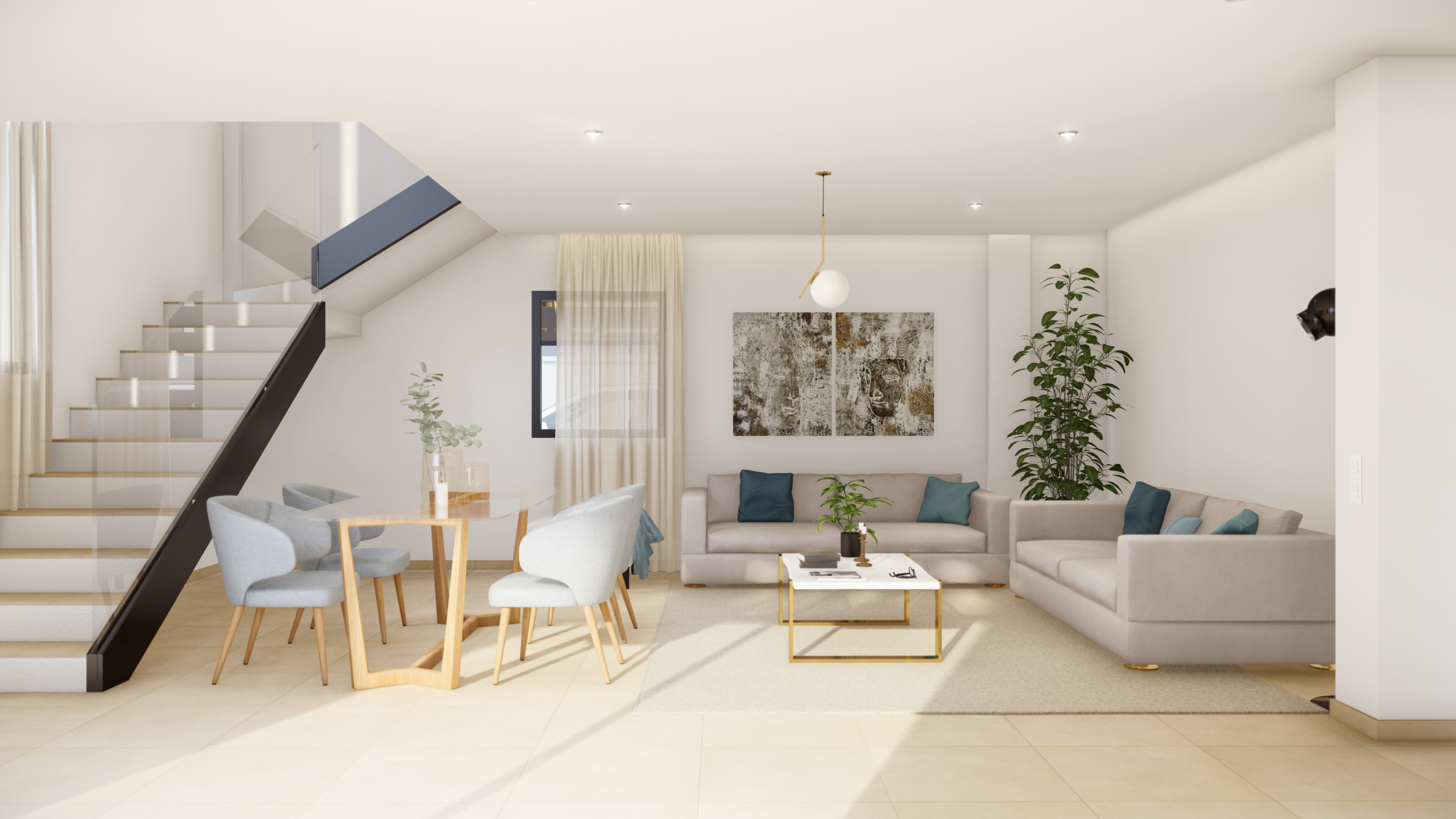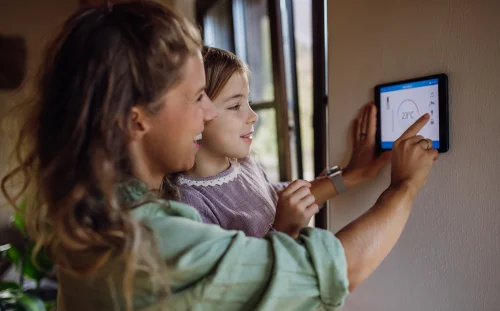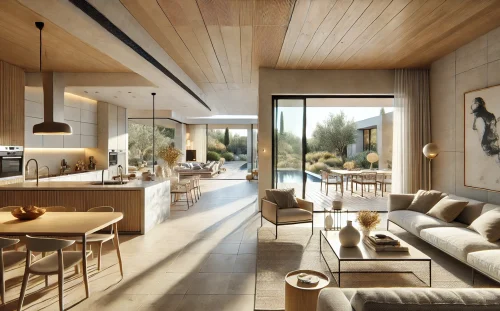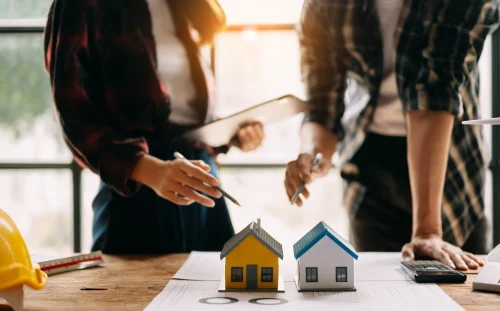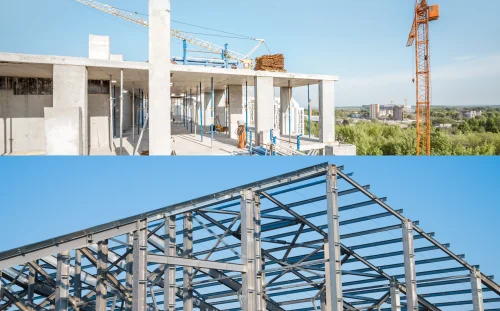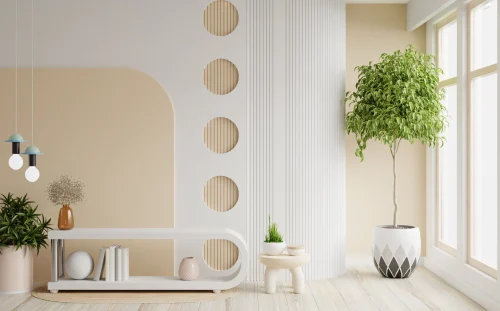Luxury villas have evolved significantly in recent years, transforming into spaces that not only impress visually, but also promote well-being, sustainability, and functionality. The year 2025 marks a turning point where the design and interior styling of these exclusive properties embraces a new philosophy that combines elegance and sophistication with environmental awareness and cutting-edge technology.
The New Warm Minimalism
The current trend in luxury interior design transforms traditional minimalism into a warmer, more welcoming style, incorporating natural textures, light woods, and earthy tones. Simple lines and functionality are preserved, but with noble materials that bring warmth, blending Japanese aesthetics with Nordic comfort to create serene, livable spaces.
Sophisticated Color Palettes
In 2025, luxury villas stand out for a color palette inspired by nature and serenity. Neutral shades such as sand, warm beige, and pearl gray dominate, creating peaceful environments. To add character and elegance, accents in emerald green, petroleum blue, and burgundy are introduced, while olive green gains popularity, especially when combined with organic materials and natural light.
Noble and Sustainable Materials
In contemporary luxury villas, the choice of materials meets both aesthetic and ethical criteria. Certified wood is prioritized in areas such as bedrooms and living rooms for its warmth and connection to nature. In kitchens and bathrooms, marble and natural stone remain popular, but responsibly sourced versions are preferred, combined with recycled and eco-friendly materials.
The Forest Effect Indoors
The trend seeks to recreate the calm of forests in living spaces through green walls, indoor gardens, and large-format plants integrated into the design. Lighting imitates the filtered light through leaves, creating dynamic effects, while natural-textured wooden floors and finishes reinforce the connection to nature.
Redefined Transitional Spaces
Luxury villas in 2025 integrate indoors and outdoors through versatile spaces such as covered terraces, sunken patios, bioclimatic pergolas, and climate-controlled winter gardens. Furniture combines durability and elegance, using long-lasting materials such as recycled teak, coated aluminum, and technical textiles.
Lighting as an Architectural Element
Lighting goes beyond its basic function, becoming an architectural feature that defines spaces and creates atmospheres. Programmable LED systems allow light to adapt to different moments and activities. Sculptural fixtures inspired by organic shapes combine functionality and art, while indirect lighting in moldings and natural light controlled by automated skylights create dynamic environments that align with the human circadian rhythm.
Personalization Through Technology
Smart home technology is seamlessly integrated to adapt spaces to the preferences of their users. This includes systems that learn habits, smart mirrors, and touch-sensitive surfaces. Additionally, modular furniture can be reconfigured via apps, allowing spaces to be transformed according to needs—from small gatherings to large events.
At personalHOME, we incorporate the latest trends in architecture and interior design, developing exclusive projects that precisely respond to the expectations, preferences, and needs of our clients.

